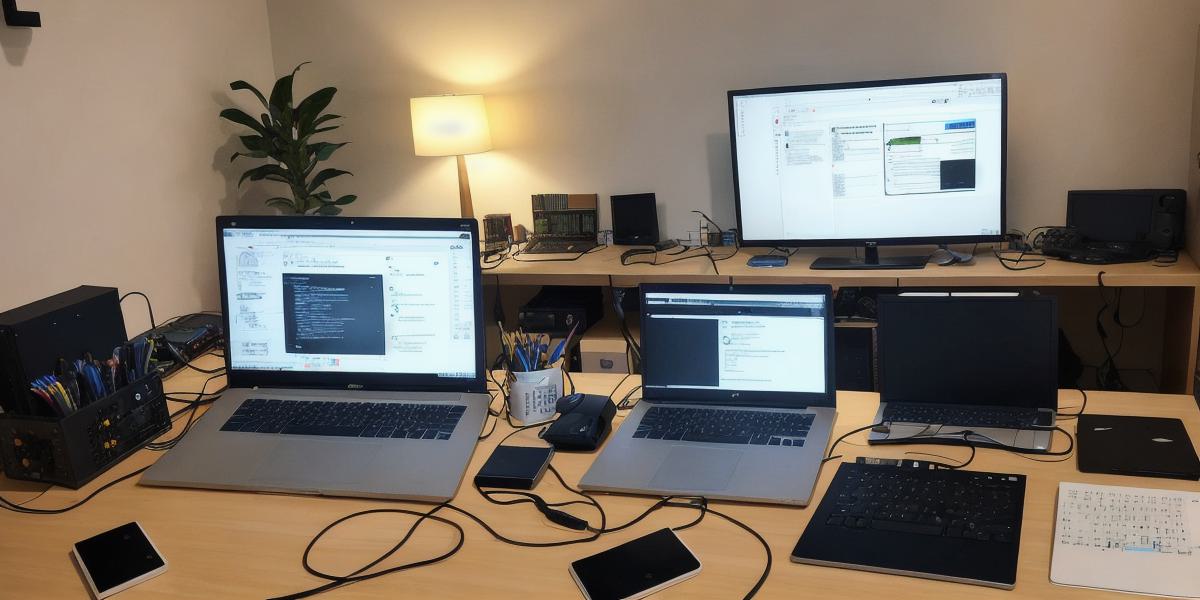Introduction:
The game development industry is growing rapidly, and it’s never been a better time for developers to start their own studios. With the right knowledge and tools, anyone can create successful games that captivate audiences and generate revenue. In this guide, we will explore everything you need to know about starting a successful game development studio. From market research to marketing and monetization strategies, we will cover all the essential aspects of game development to help you build a thriving business.
Market Research:
Before diving into game development, it’s crucial to conduct thorough market research. Understanding your target audience and what they want in a game is key to creating successful games that resonate with players. Conducting surveys, analyzing industry trends, and studying competitor strategies can all help you identify gaps in the market that your studio can fill. By conducting this research, you will be better equipped to create games that meet the needs of your target audience and stand out from the competition.
Defining Your Game Idea:
Once you have completed your market research, it’s time to start brainstorming ideas for your game. The key here is to come up with an idea that captures the imagination of players and sets your game apart from the competition. When defining your game idea, consider the type of game, genre, and target audience. You should also think about the unique features and mechanics that will make your game stand out. It’s essential to have a clear vision for your game before moving forward with development.
Prototyping:
Once you have a solid game idea, it’s time to start prototyping. This is where you create a basic version of your game to test out your concept and see if it works. Prototyping helps you identify any problems early on in the development process and allows you to make changes before investing too much time and money into the project. By creating a prototype, you can also get valuable feedback from potential players and investors that will help you refine your game idea.
Assembling Your Team:
Building a successful game requires a team of talented individuals with diverse skills. Assembling your team is one of the most important steps in starting a game development studio. You will need to hire programmers, artists, designers, and other professionals who have experience in game development. When hiring team members, it’s crucial to find individuals who are passionate about their work and share your vision for the game. You should also look for people with complementary skill sets who can work well together and contribute to the success of the project.
Funding:
Starting a game development studio can be expensive, and you will need to secure funding to get your project off the ground. There are several options for funding a game development project, including crowdfunding, grants, and investors. When seeking funding, it’s essential to have a solid business plan that outlines your goals, strategies, and projected revenue. Having a clear understanding of your financial needs and how you will meet them will help you attract the right investors and secure the funding you need to bring your game to life.
Marketing:
Once your game is complete, it’s time to start marketing it to potential players. Marketing is a critical aspect of game development, as it can make or break the success of your project. When developing a marketing strategy, consider using social media platforms like Twitter, Facebook, and Instagram to reach potential players. You can also use influencer marketing, content marketing, and search engine optimization (SEO) to increase visibility and drive traffic to your game. It’s essential to create a buzz around your game before it’s even released.
Monetization Strategies:
The final step in starting a successful game development studio is to develop monetization strategies. There are several ways to monetize a game, including in-app purchases, subscriptions, and advertising. When choosing a monetization strategy, consider the type of game you are creating and your target audience. You should also think about the potential revenue streams that will be most effective for your project. It’s important to have a clear understanding of how you will generate revenue from your game before launching it.
Summary:
Starting a game development studio can be a challenging but rewarding experience. With the right knowledge, tools, and strategies, anyone can create successful games that capture the imagination of players and generate revenue. By conducting thorough market research, defining your game idea, prototyping, assembling your team, securing funding, marketing your game effectively, and developing monetization strategies, you can build a thriving business that brings joy to players around the world.
Additional Examples:

To further illustrate the concepts discussed in this guide, let’s look at some additional examples of successful game development studios and their journeys.
- Fortnite: Epic Games launched Fortnite in 2017 as a battle royale game that quickly gained popularity among players. The company secured funding from investors and used social media to market the game, which helped generate buzz and excitement around its release. Fortnite’s success can be attributed to its engaging gameplay, frequent updates, and strong community.
- Among Us: InnerSloth launched Among Us in 2018 as a multiplayer game that required players to work together to complete tasks while trying to identify and vote off impostors among them. The company secured funding from investors and used social media to market the game, which helped generate buzz and excitement around its release. Among Us’s success can be attributed to its engaging gameplay, strong community, and frequent updates.
- Minecraft: Markus Persson launched Minecraft in 2009 as a sandbox game that allowed players to build and explore virtual worlds. The company secured funding from investors and used social media to market the game, which helped generate buzz and excitement around its release. Minecraft’s success can be attributed to its engaging gameplay, strong community, and frequent updates.
In conclusion, starting a successful game development studio requires careful planning, execution, and marketing. By following the steps outlined in this guide and using examples from successful studios like Fortnite, Among Us, and Minecraft, you can create a game that captures the imagination of players and generates revenue.
